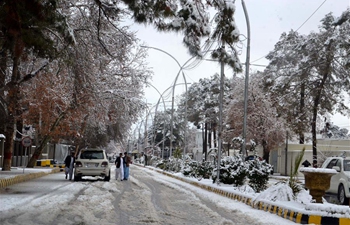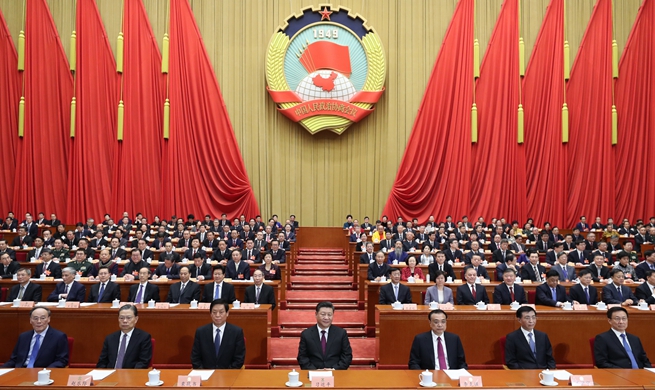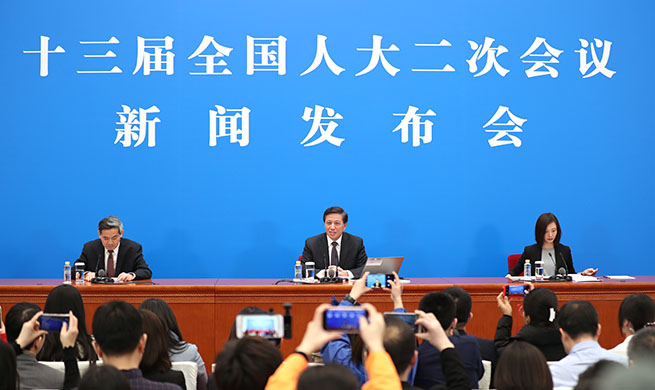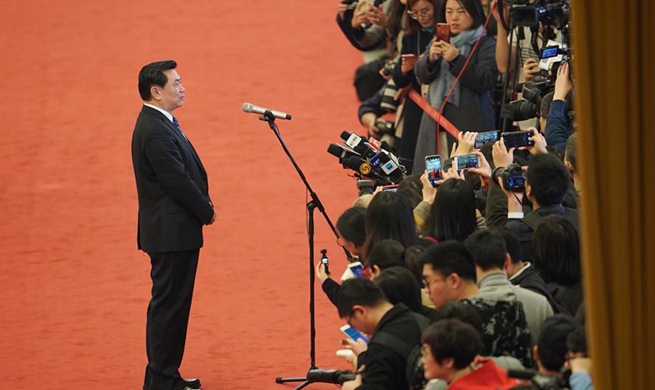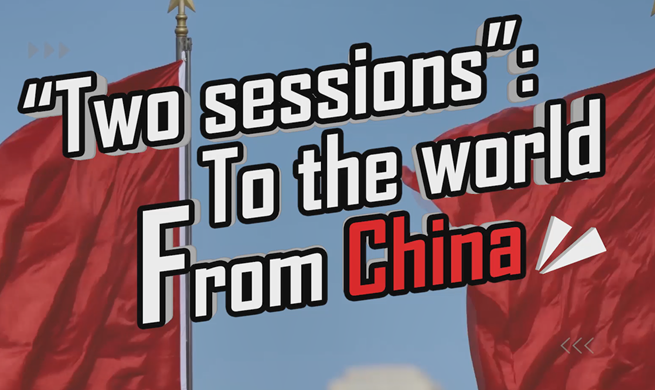BEIJING, March 4 (Xinhua) -- Marco Cabero, a 35-year-old Bolivian scientist, is not usually very talkative. But when it came to the recent hit film "The Wandering Earth," he began to talk himself out.
As a science fan, especially of American and English works, Cabero for the first time watched a Chinese science fiction movie, and "it really appealed to me," he said with a smile, adding that Liu Cixin's science fiction story showed great creativity by associating the remote space with the future of humanity.
In Cabero's view, the rising popularity of Chinese science fiction works like "The Wandering Earth" reflects China's growing technological strength and scientific research level, to which he is an honored witness.
In 2013, China successfully helped Bolivia launch a communications satellite, Tupac Katari. As Bolivia's first satellite, it opened up new horizons for the space cooperation between the two countries.
Cabero was a direct participant in the China-Bolivian cooperation. In 2012, he was selected from 6,000 candidates to participate in the design and development of the project in China, focusing on energy supply of solar panels on satellites.
Cabero said the satellite not only gave Bolivia a place in space, but also benefited the Bolivian people. By providing communication signals, the satellite facilitated the spread of the mobile healthcare service and distance learning to a lot of remote areas where one third of the Bolivian population lives.
Cabero returned home briefly after completing the satellite project, during which he received invitations from Japan, the United States, and China. In the end, he chose to continue his scientific research in China, because "the growth of China's scientific development is really amazing," he said.
Cabero is currently with the international school of Beijing University of Aeronautics and Astronautics. Besides teaching, he has also participated in experimental projects of spintronic and organic photovoltaic materials, which are closely related to aerospace.
Cabero admitted that for many Latin American researchers, China's strong financial and intellectual support is an important source of its huge attraction.
"In China, I got the opportunity to be a leader of a costly group supported by millions of RMB, to use robots as assistants in the laboratories, and to see the movements of electrons under precision instruments. Before that, I only saw these scenes in science fiction," he said.
To his greater delight, Cabero was personally mentored by two Nobel Prize laureates for his projects in China, while "in Bolivia, it's impossible to have the chance," he sighed.
According to Cabero, French scientist Albert Fert, the 2007 Nobel Prize winner in physics, and American scientist Alan Heeger, the 2000 Nobel Prize winner in chemistry, would come to his laboratory each semester to guide his work. "It's really fantastic to meet them, know them, and listen to their ideas."
Cabero said that China has given him a dreamlike stage for scientific research, and the stage is now getting bigger. Earlier this year, China's Chang'e 4 successfully achieved the first soft landing of a human probe on the far side of the moon, to which he gave a thumbs-up without any hesitation.
"It marks an important step in space exploration. As I know, China is planning to launch a probe in 2020 that would orbit, land, and rove on Mars. All of these represent a nation's technological advances and comprehensive power," he said.
During his six years in China, Cabero has not only witnessed the "great development" of science and technology, but also felt the "small progress" of intelligent life.
"Every day, I use electronic payments and online shopping platforms. The technology progress will bring reformative influence and facilitate our daily life," he said.
Looking to the future, Cabero naturally linked his personal development to China. "Honestly, I had never imagined coming to China. My experiences tell me that now it's a good time to be a part of the technological reform in China, and I hope to make some contributions to promoting the development of the science and technology of China and the whole world."







